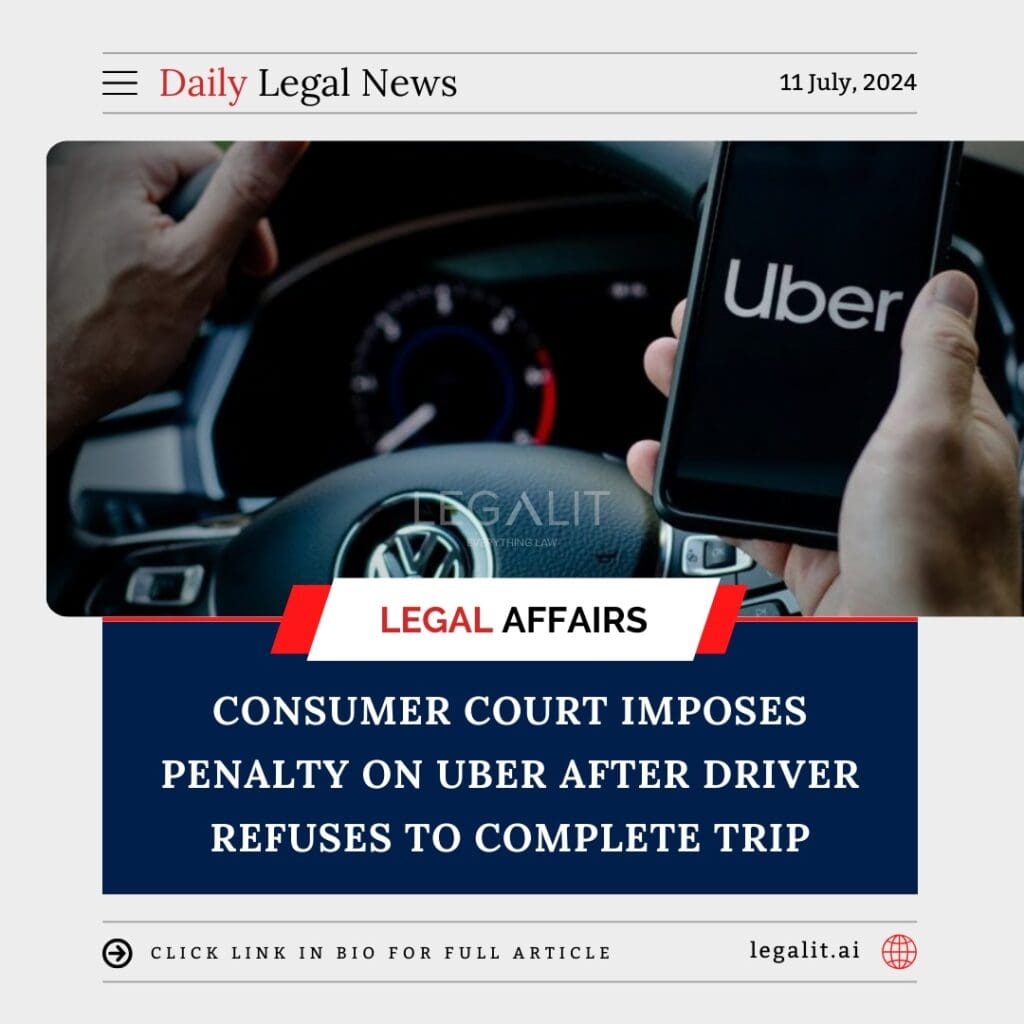
In a noteworthy ruling, a consumer court has imposed a penalty on Uber, the global ride-hailing service, after a driver refused to complete a trip. This decision highlights the accountability of ride-hailing companies to ensure the fulfillment of their service commitments to customers.
Background of the Case
The incident involved an Uber driver who, after accepting a ride request, refused to complete the trip, leaving the passenger stranded. The passenger subsequently filed a complaint with the consumer court, citing inconvenience, financial loss, and breach of service. The court took up the matter to address the grievance and ensure consumer rights are protected.
Court’s Findings and Rationale
The consumer court’s decision to impose a penalty on Uber was based on several key considerations:
- Breach of Service Contract: The court found that Uber, by failing to ensure the driver completed the trip, breached its service contract with the passenger. The terms of service implicitly guarantee that once a ride is accepted, it should be completed unless there are exceptional circumstances.
- Consumer Rights: Emphasizing consumer protection, the court underscored that passengers have the right to expect reliable service from ride-hailing companies. When this expectation is not met, it constitutes a valid ground for compensation.
- Accountability: The court highlighted the responsibility of Uber to monitor and manage its drivers, ensuring they adhere to company policies and service standards. Failure to do so impacts the company’s accountability to its customers.
Implications of the Ruling
The court’s decision has several significant implications for ride-hailing services and consumer rights:
- Enhanced Accountability: The ruling reinforces the need for ride-hailing companies to maintain high standards of service and hold their drivers accountable for fulfilling their duties.
- Consumer Empowerment: This decision empowers consumers to seek redressal and compensation when they face service failures, ensuring their rights are protected.
- Operational Improvements: Companies like Uber may need to implement stricter monitoring and management practices to prevent such incidents and maintain trust in their service.
Reactions
The ruling has garnered varied reactions from different stakeholders:
- Consumer Advocates: Many consumer rights advocates have welcomed the decision, viewing it as a positive step toward protecting consumer interests and ensuring reliable service from ride-hailing companies.
- Industry Concerns: On the other hand, some in the ride-hailing industry express concerns about the operational challenges in managing a vast network of drivers and ensuring compliance with service standards.
Conclusion
The consumer court’s decision to impose a penalty on Uber for a driver’s refusal to complete a trip underscores the importance of accountability and consumer rights in the ride-hailing industry. This ruling not only addresses the specific grievance but also sets a precedent for similar cases, reinforcing the expectations of reliable service and corporate responsibility.